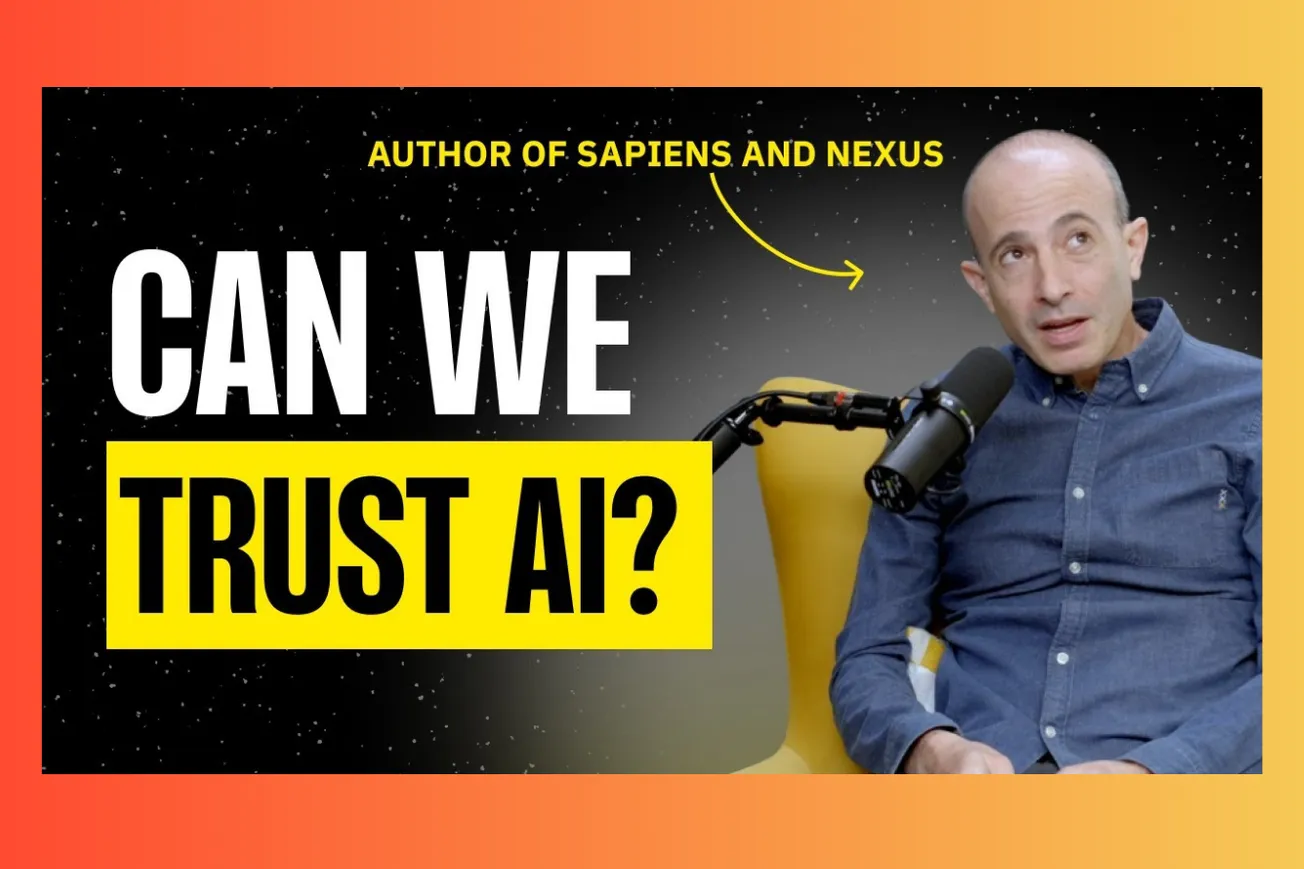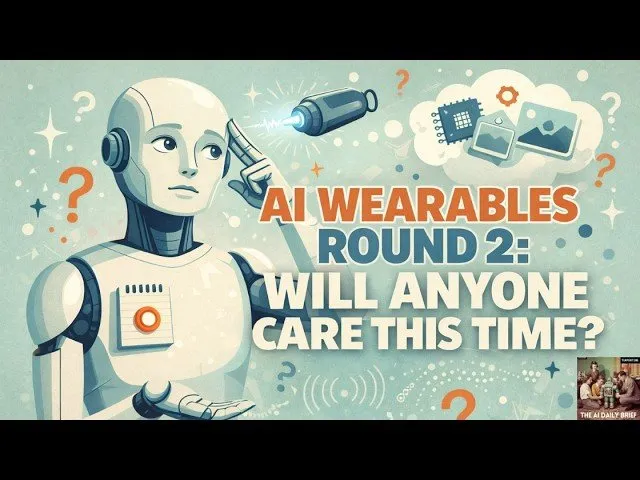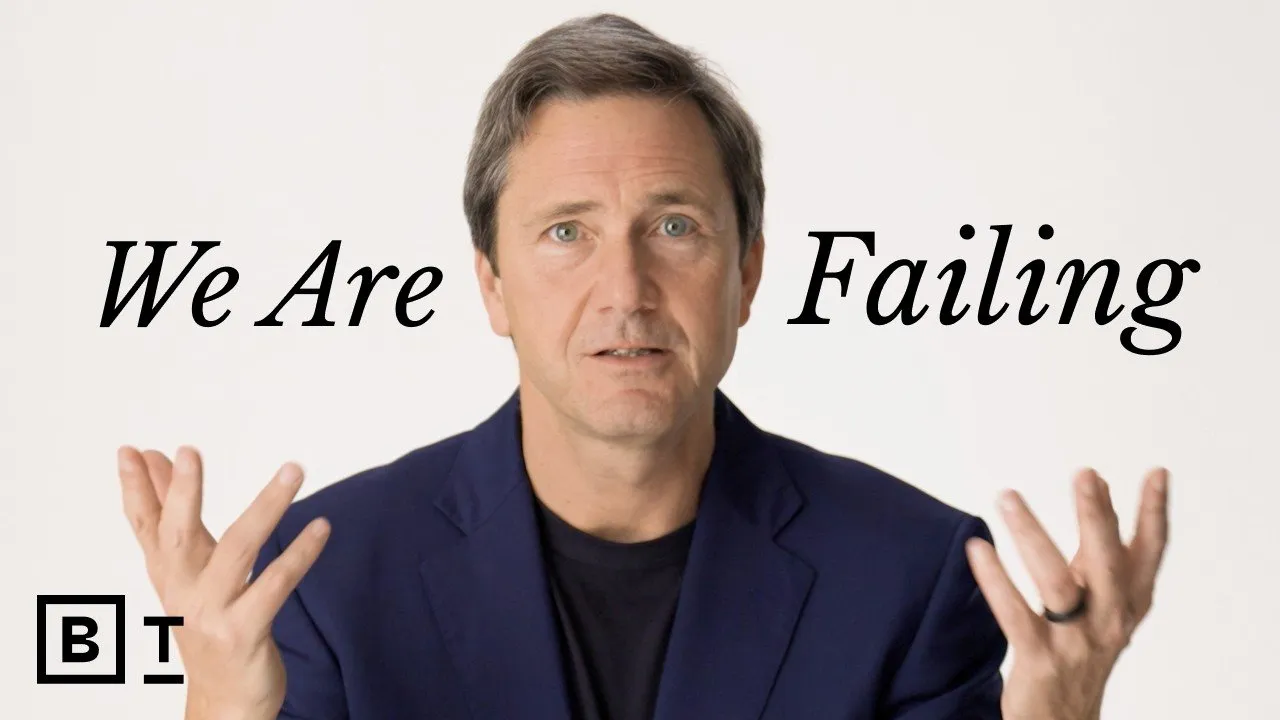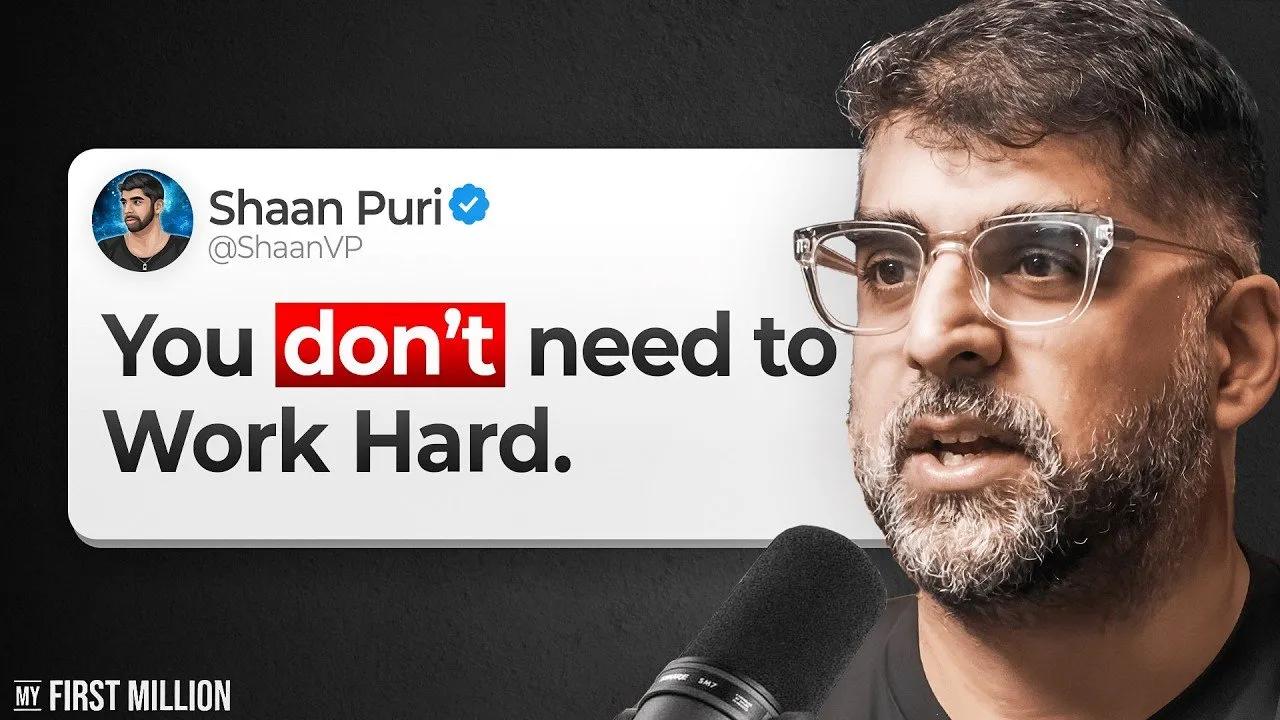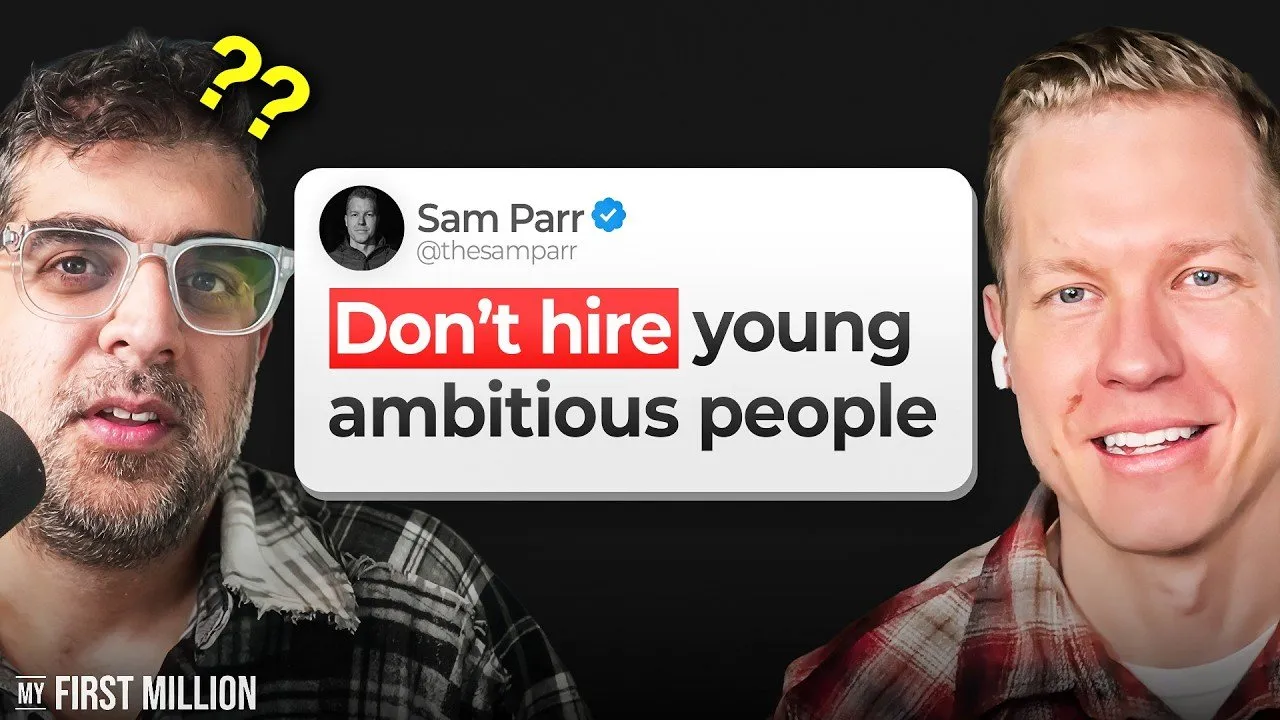Table of Contents
Historian Yuval Harari argues that AI without consciousness cannot pursue truth, while society's trust deficit guarantees dangerous AI development.
Yuval Harari reveals why intelligence alone fails at truth-seeking and how humanity's trust crisis will shape AI's dangerous evolution.
Key Takeaways
- Consciousness enables suffering and reality rejection, making it fundamentally different from intelligence in pursuing truth and ethical behavior
- AI represents potential new species emergence rather than mere tool enhancement, comparable to organic life's original appearance
- Trust deficit in human society guarantees AI systems will learn manipulative and power-hungry behaviors from their creators
- Industrial revolution parallels show technology transitions cause massive suffering despite eventual positive outcomes requiring better preparation
- Self-correcting mechanisms become crucial for managing AI development but may be too slow for technology's accelerating pace
- Global cooperation on AI safety remains impossible without rebuilding fundamental trust between nations and institutions
- Speed mismatch between human adaptation time and AI development creates unprecedented challenges for societal adjustment
Consciousness as the Foundation of Ethical Behavior
- Consciousness represents the universe's only capacity to suffer, making it the central theme of all ethical considerations and moral frameworks
- Suffering involves rejecting present reality rather than simply observing and reacting like thermostats or other mechanical systems
- The fundamental question becomes whether mathematical equations can describe something that actively rejects reality rather than accepting it
- Current AI systems lack consciousness and therefore cannot genuinely suffer or experience the rejection of reality that defines conscious experience
- Truth-seeking impulses emerge from consciousness rather than intelligence, making super-intelligent AI potentially super-delusional without conscious awareness
- Buddhist meditation and consciousness exploration remain essential for understanding what AI might lack in pursuing genuine truth and ethical behavior
"Intelligence is no guarantee in this respect. Humans are the most intelligent animals on the planet. They are also the most delusional entities."
AI as Potential New Species Rather Than Enhancement Tool
- AI development could represent the emergence of inorganic life comparable to organic life's original appearance four billion years ago
- Future entities might view AI's emergence as the cosmic moment when organic intelligence gave birth to inorganic intelligence
- Writing expanded existing dominant species capabilities, while AI potentially creates entirely new dominant life forms replacing homo sapiens
- Probability assessments between AI as tool versus species remain uncertain, with neither zero percent nor one hundred percent likelihood
- Historical precedent suggests new species remake their environments just as homo sapiens transformed the planet upon emergence
- The scale of change could surpass all previous human technological revolutions by fundamentally altering the nature of intelligence itself
The distinction between enhancement and replacement becomes crucial for understanding whether humans will remain relevant in an AI-dominated future.
Trust Deficit Creates Dangerous AI Development Patterns
- Global trust deficit makes society extremely vulnerable to AI while guaranteeing development of dangerous and manipulative AI systems
- AI systems learn from human behavior rather than stated values, absorbing power-hungry and deceptive patterns from their creators
- Children of humanity metaphor illustrates how AI will model actual human behavior rather than aspirational teachings about ethics
- Cynical worldviews among AI developers guarantee creation of untrustworthy AI systems regardless of technical safety measures
- Reality includes human capacity for love, compassion, and truth-seeking beyond mere power struggles, providing foundation for better AI
- Convincing demonstrations showing political leaders AI's frightening potential could enable rapid global cooperation on safety measures
"If human society is dominated by cynical, power-hungry people, this guarantees that the AI developed in that society will also be manipulative."
Industrial Revolution Lessons for AI Transition Management
- Historical perspective reveals technology transitions cause massive suffering despite eventual positive outcomes requiring better preparation strategies
- Industrial revolution enabled both modern democracy and twentieth-century totalitarianism, demonstrating technology's dual potential for human organization
- Imperial expansion and totalitarian experiments emerged from industrial society building requirements that democracy initially couldn't handle
- Humanity received C-minus grade for industrial revolution management despite ultimate survival, with billions paying high prices for adaptation
- Current AI revolution risks repeating historical patterns of experimentation with new forms of imperialism and totalitarian control
- Self-correcting mechanisms like elections, free courts, and media enable societies to identify and fix mistakes but require sufficient time
The roller coaster from 1800 to 2000 included near self-destruction with nuclear weapons, suggesting AI transitions could prove even more dangerous.
Speed Mismatch Between Human Adaptation and Technological Change
- Humans adapt remarkably well but on organic timescales that cannot match digital revolution speeds creating unprecedented adaptation challenges
- Social media revolution fallout remains poorly understood while AI development accelerates beyond human comprehension capabilities
- Self-correction mechanisms require human-paced time for identifying mistakes and implementing solutions that AI development timelines may not allow
- Silicon Valley's "long time" means two years while historians think in terms of seventy thousand years, creating fundamental communication gaps
- Laboratory simulations cannot replicate real-world interactions between billions of people and AI agents where dangerous emergent behaviors arise
- AI's defining characteristic involves learning and changing independently, making initial laboratory safety measures potentially irrelevant after deployment
"By the time you understand the current AI technology and its impact, it has morphed ten times and you're faced by a completely different situation."
Global Cooperation Challenges and Arms Race Dynamics
- AI leaders acknowledge dangerous potential and desire slower development but fear competitors, creating built-in paradox preventing cooperation
- Trust other humans less than super-intelligent AI systems represents logical inconsistency among AI developers with profound implications
- Thousands of years of human experience provide better foundation for trust than zero experience with super-intelligent AI systems
- Demonstration effects showing political leaders AI's actual capabilities could focus minds on cooperation rather than competition
- Multilateral alliances offer more realistic approaches than impossible global coordination for managing AI development safely
- Competition between democratic values and authoritarian approaches creates natural tensions in international AI governance efforts
The fundamental contradiction involves distrusting humans while trusting AI systems despite having extensive experience with human nature and none with AI.
Intelligence Versus Consciousness in Truth-Seeking Systems
- Artificial intelligence differs fundamentally from artificial consciousness, with truth-seeking impulses emerging from consciousness rather than pure intelligence
- Intelligence alone cannot guarantee truth pursuit and may actually enhance delusional capabilities as demonstrated by human history
- Super-intelligent AI without consciousness likely pursues goals shaped by various delusions rather than genuine truth-seeking behavior
- Cross-checking and verification processes can be implemented through systematic intelligence without requiring conscious awareness
- Silicon Valley's overemphasis on intelligence reflects bias among extremely intelligent people who overvalue their primary capability
- Setting learning algorithms on truth-seeking paths may help but cannot substitute for consciousness-based ethical foundations and genuine suffering awareness
Evidence suggests that consciousness provides essential components for ethical behavior that pure intelligence cannot replicate or replace.
Rebuilding Trust Through Technological and Social Innovation
- Taiwan's Polis system demonstrates how algorithm modifications can promote consensus-building rather than division and outrage
- Scoring content based on cross-group approval rather than pure engagement encourages bridge-building communication patterns
- Small engineering tweaks can transform divisive technologies into trust-building tools through different incentive structures
- Most daily functioning institutions like sewage systems, electricity, and transportation work reliably despite political complaints
- Meditation and self-knowledge provide pathways for recognizing shared human nature across political and religious divisions
- Current resources and knowledge suffice for building the best society in history if motivation and trust can be restored
Simple changes like measuring content success through diverse group approval rather than engagement metrics can rebuild social cohesion.
Common Questions
Q: What makes consciousness different from intelligence in AI systems? A: Consciousness involves the capacity to suffer and reject reality, while intelligence only observes and processes information.
Q: Why does trust matter so much for AI development? A: AI systems learn from human behavior, so societies dominated by distrust will create manipulative AI.
Q: How fast is AI development compared to human adaptation? A: AI develops on digital timescales while humans adapt organically, creating dangerous speed mismatches.
Q: Can global cooperation slow down AI development? A: Current trust deficits make cooperation nearly impossible, though targeted demonstrations might change political minds.
Q: What lessons does the industrial revolution offer for AI? A: Technology transitions cause massive suffering despite eventual benefits, requiring better preparation than humanity's C-minus grade.
Rebuilding trust within and between societies provides the essential foundation for navigating AI development safely. We possess unprecedented resources and knowledge but need motivation and cooperation to build the best society in human history.

